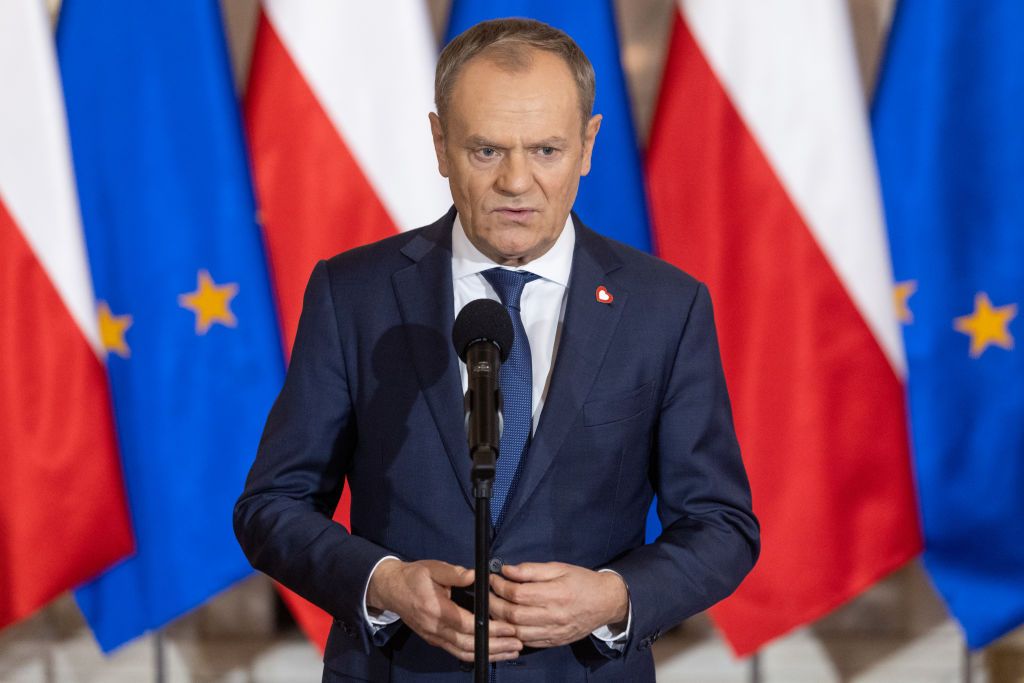Zelensky pledges 'quick steps' in response to blockade of Polish-Ukrainian border

President Volodymyr Zelensky discussed the ongoing border blockade of Polish farmers with Ukrainian officials on Feb. 21 and said Kyiv would take the next steps "very quickly."
He did not specify what these steps would entail.
Polish farmers launched a new wave of protests on the border in early February in opposition to an influx of Ukrainian agricultural imports to the EU and the bloc's Green Deal. The situation escalated on Feb. 20, when protesters restricted the traffic even further, and some farmers dumped Ukrainian grain on railway tracks.
Zelensky discussed the current situation at the border with Foreign Minister Dmytro Kuleba, Infrastructure Minister Oleksandr Kubrakov, Deputy Prime Minister for European and Euro-Atlantic Integration Olha Stefanishyna, and Minister of Agrarian Policy Mykola Solskyi.
"Liberalization of trade with the European Union must continue, and I am grateful for the clear position of the European Commission," Zelensky said via his Telegram channel after the meeting.
"Our unity must also be strong for the sake of common security and the security of all countries threatened by Russian aggression. Situational interests have no right to shake it."

Kyiv and Warsaw are negotiating a solution to the border blockade. Polish Agriculture Deputy Minister Michal Kolodziejczak warned on Feb. 21 that if the talks fail, Warsaw may introduce further restrictions on Ukrainian goods.
Poland has previously banned imports of grain and several other Ukrainian agricultural products.
Poland has been one of Ukraine's staunchest allies since the start of the full-scale Russian invasion, but the relations began to sour somewhat last year over agricultural trade disputes.
Both countries are major agricultural producers. When the EU lifted restrictions and tariffs on Ukrainian goods in 2022, farmers in Poland and other neighboring countries complained that cheaper imports from Ukraine presented an unfair advantage.
In protest, Polish carriers and farmers blocked Poland-Ukraine border crossings between November 2023 and January, harming Ukraine's economy and causing delays in humanitarian aid deliveries.
Polish farmers said the new blockade was prompted by what they perceive as inaction and broken promises by Polish authorities.














